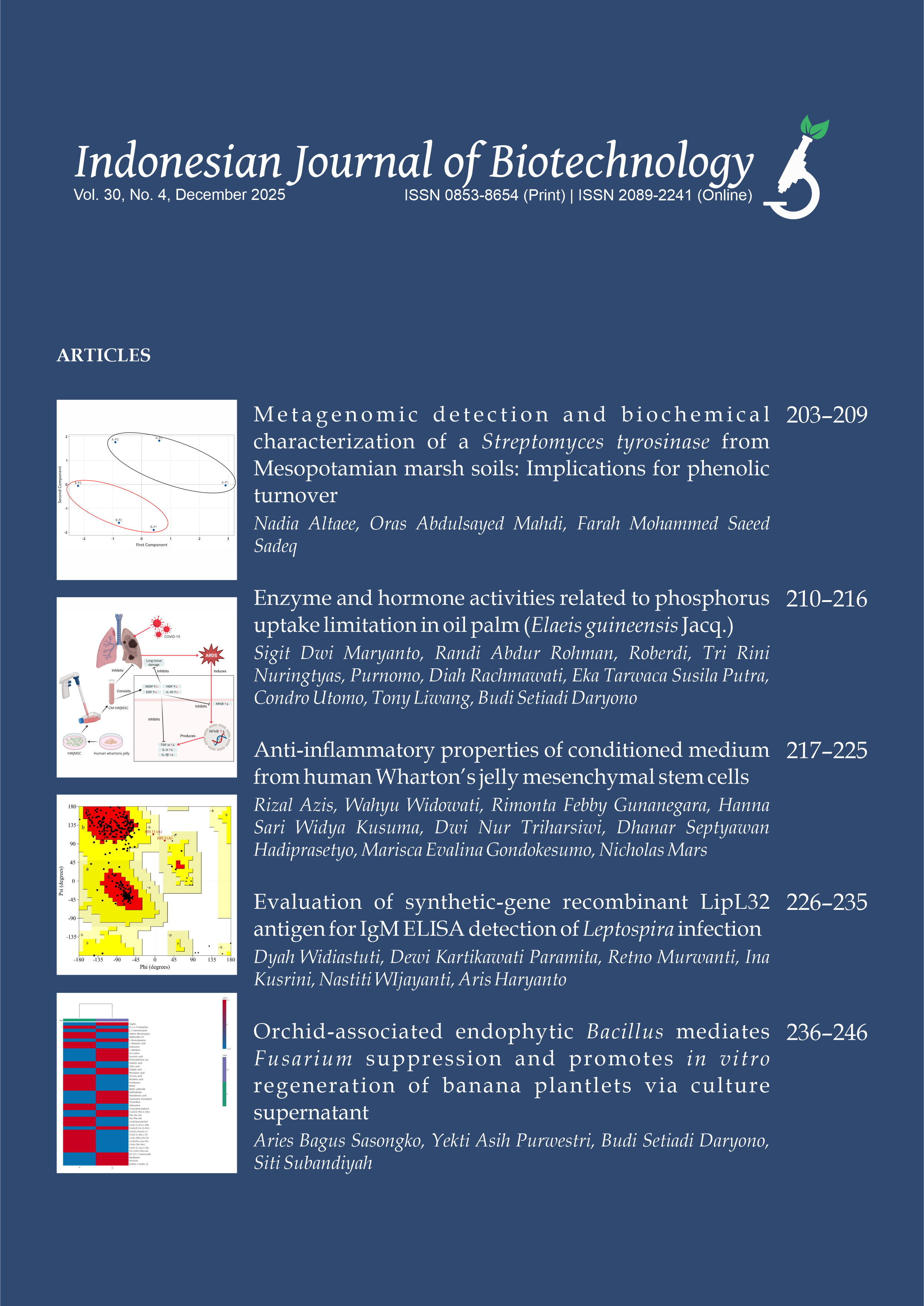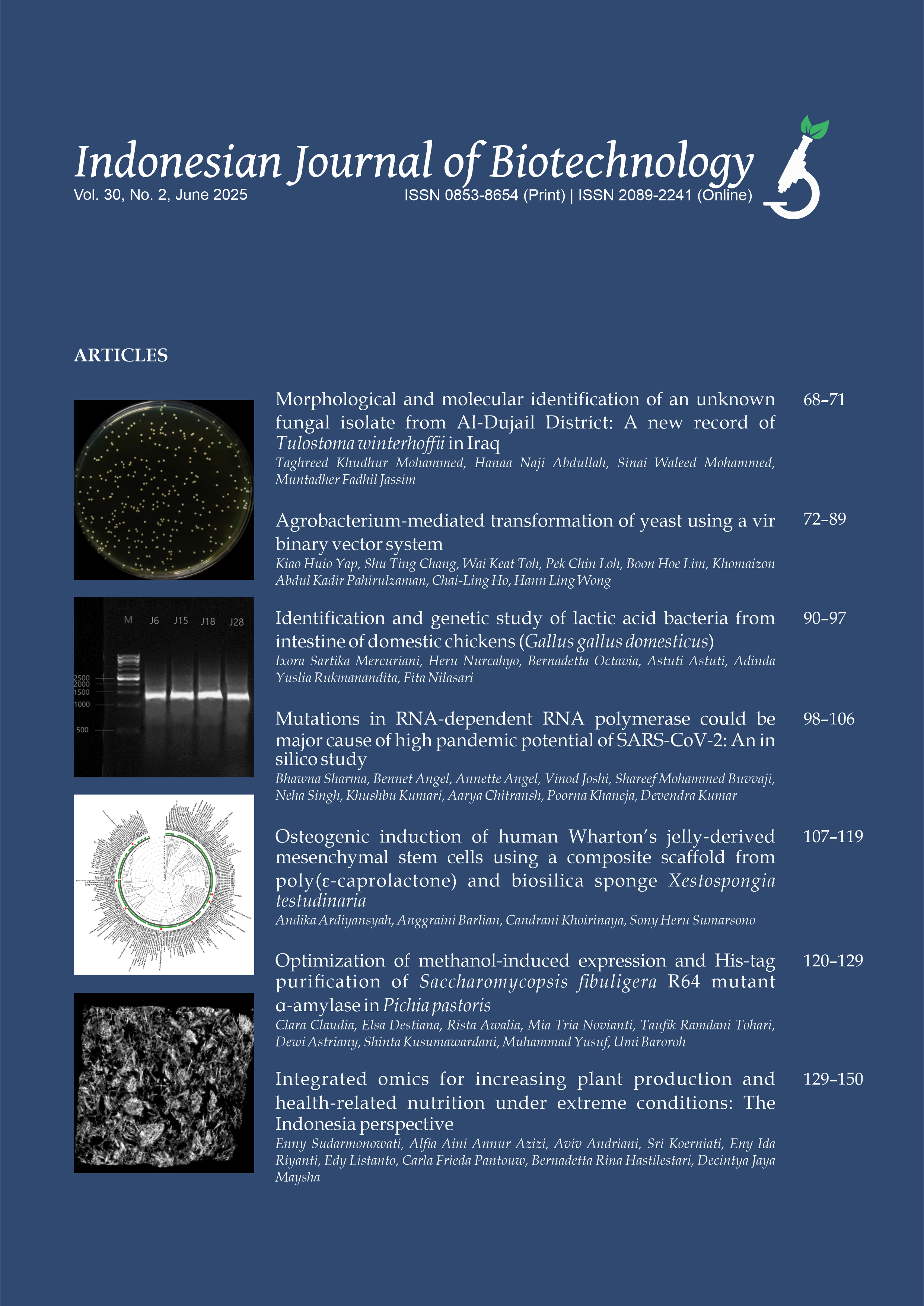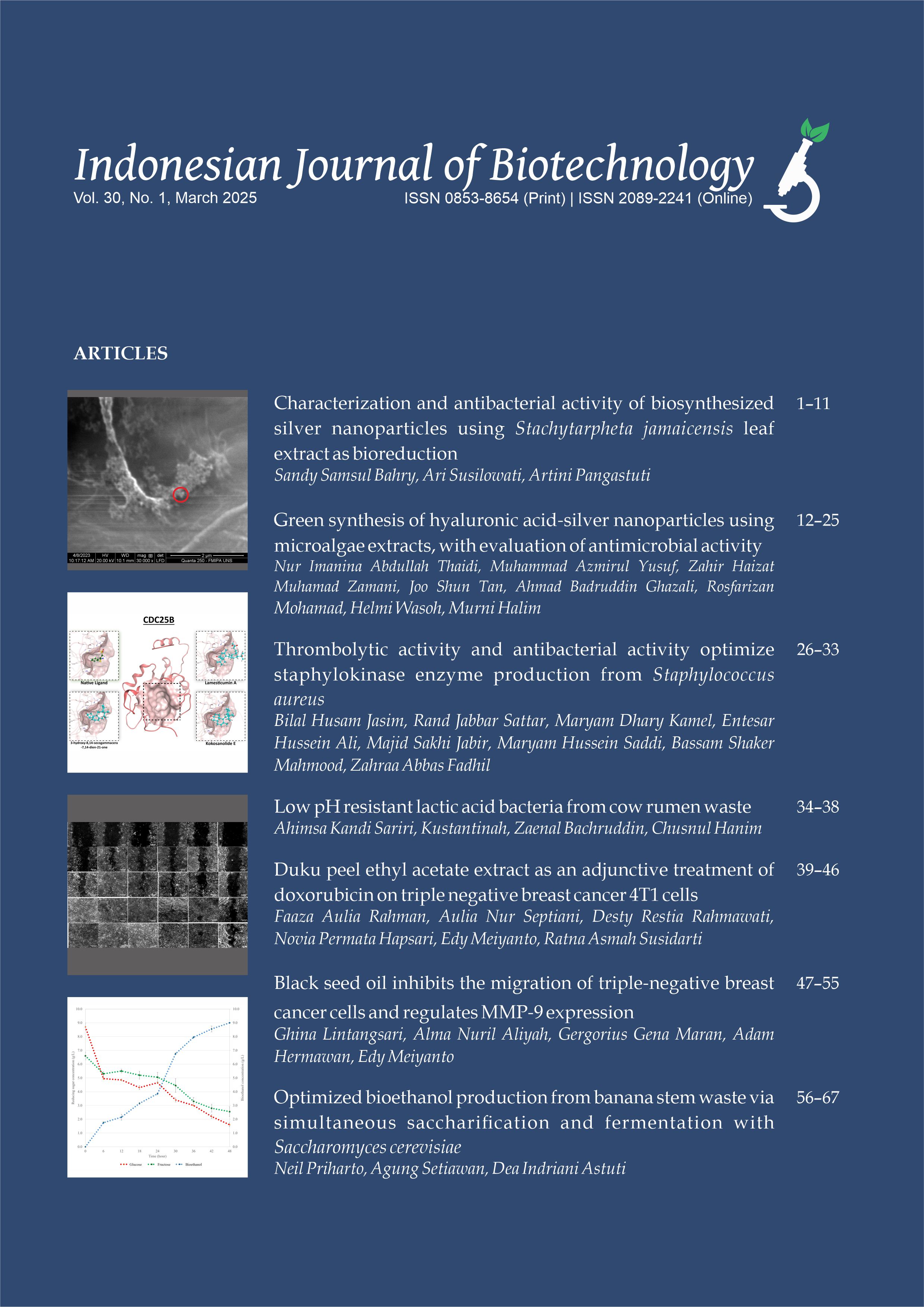The Efficacy of Fucoidan on Gastric Ulcer
Mohammad Juffrie(1*), Ina Rosalina(2), Wahyu Damayanti(3), Ali Djumhana(4), A. Ariani(5), Harjono Ahmad(6)
(1)
(2)
(3)
(4)
(5)
(6)
(*) Corresponding Author
Abstract
Hyperacidity causes gastric injury, and in severe situations, ulcer could develop. The growth factors known as
the basic fibroblast growth factor (bFGF) and the epidermal growth factor (EGF) have been recognized to promote
ulcer healing. Fucoidan is extracted from a brown seaweed of Okinawa called Mozuku or Cladosiphon okamuranus.
Fucoidan is effective for the healing of gastric ulcers by inducing epithelial cells to produce growth factors. The aim
of this study is to explore the efficacy of fucoidan in patient who suffered by gastric ulcer. A randomized control trial
double blind was conducted to 33 eligible samples. By using four-blocks random samples were divided into fucoidan
and placebo groups. 100 mg of fucoidan was given to the fucoidan group and 100 mg of glucose was given to the
placebo group. Due to ethical reasons, for both groups were given a proton pump inhibitor. There was no difference
in the age category between the fucoidan group (mean: 46.23 ± 14.8 years) and the placebo group (mean: 46.18 ± 18.4
years) (p: 0.28). There was also no difference in sex between the fucoidan group (female: 10/33; male 7/33) and the
placebo group (female: 7/33; male: 9/33); p: 0.38. According to the SAKITA and MIWA criterias 32 patients fulfilled
A1 which indicate active severe ulcer, and 1 patient fulfilled A2 which indicate active moderate ulcer. Most of the
ulcers were gastric ulcer. There was a significant improvement of the grade of ulcer in fucoidan group (94%) (16/17)
compared to placebo group (37.5%) (6/16,p: 0.005). There was a significant reduction of abdominal pain after 5 days
in the fucoidan group, compared to the placebo group (p: 0.04). Vomiting tends to decrease in day 6 of the fucoidan
group however its proportion is similar with that of the placebo group (p: 0.9). Fucoidan is effective for ulcer healing
and reducing ulcer symptoms.
Key words : fucoidan, gastric ulcer, anti-peptic activity
the basic fibroblast growth factor (bFGF) and the epidermal growth factor (EGF) have been recognized to promote
ulcer healing. Fucoidan is extracted from a brown seaweed of Okinawa called Mozuku or Cladosiphon okamuranus.
Fucoidan is effective for the healing of gastric ulcers by inducing epithelial cells to produce growth factors. The aim
of this study is to explore the efficacy of fucoidan in patient who suffered by gastric ulcer. A randomized control trial
double blind was conducted to 33 eligible samples. By using four-blocks random samples were divided into fucoidan
and placebo groups. 100 mg of fucoidan was given to the fucoidan group and 100 mg of glucose was given to the
placebo group. Due to ethical reasons, for both groups were given a proton pump inhibitor. There was no difference
in the age category between the fucoidan group (mean: 46.23 ± 14.8 years) and the placebo group (mean: 46.18 ± 18.4
years) (p: 0.28). There was also no difference in sex between the fucoidan group (female: 10/33; male 7/33) and the
placebo group (female: 7/33; male: 9/33); p: 0.38. According to the SAKITA and MIWA criterias 32 patients fulfilled
A1 which indicate active severe ulcer, and 1 patient fulfilled A2 which indicate active moderate ulcer. Most of the
ulcers were gastric ulcer. There was a significant improvement of the grade of ulcer in fucoidan group (94%) (16/17)
compared to placebo group (37.5%) (6/16,p: 0.005). There was a significant reduction of abdominal pain after 5 days
in the fucoidan group, compared to the placebo group (p: 0.04). Vomiting tends to decrease in day 6 of the fucoidan
group however its proportion is similar with that of the placebo group (p: 0.9). Fucoidan is effective for ulcer healing
and reducing ulcer symptoms.
Key words : fucoidan, gastric ulcer, anti-peptic activity
Full Text:
PDFArticle Metrics
Refbacks
- There are currently no refbacks.
Copyright (c) 2015 Indonesian Journal of Biotechnology









